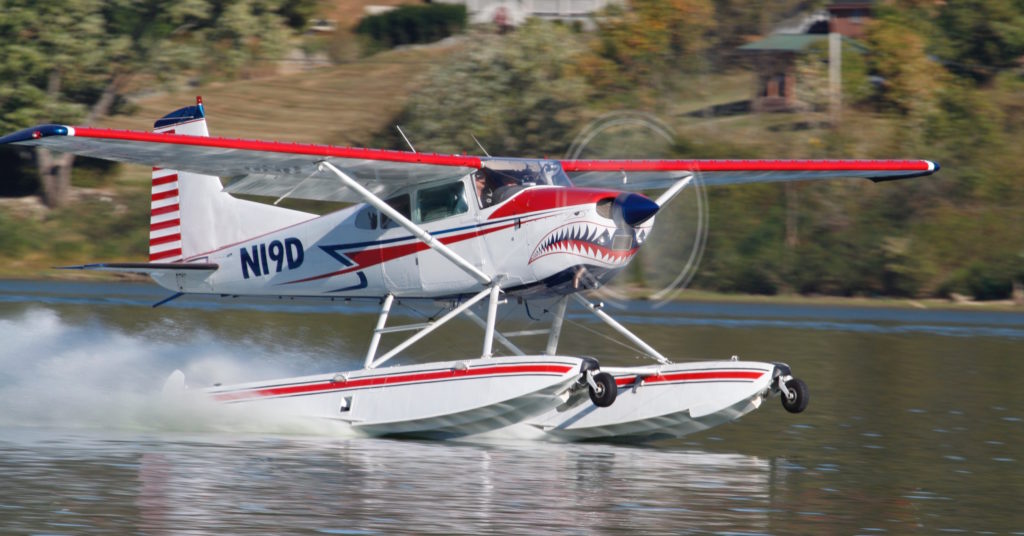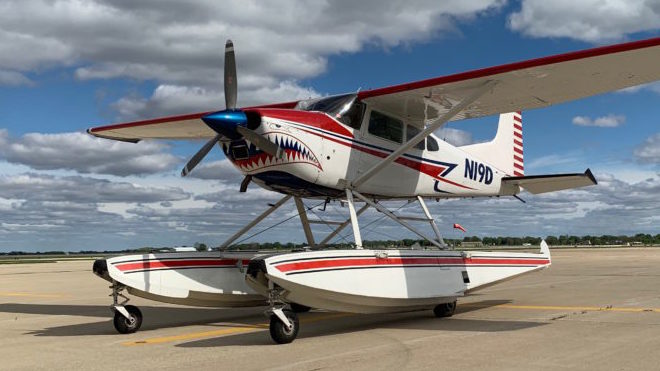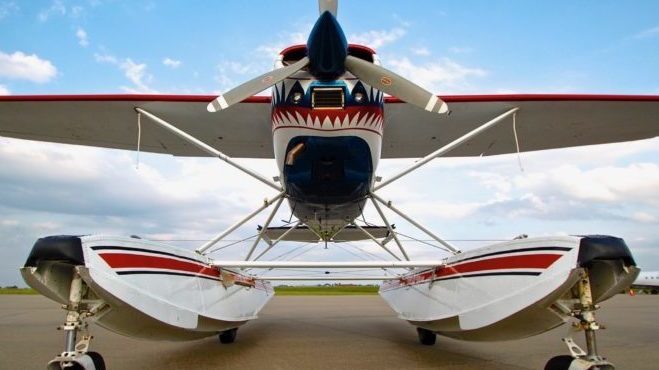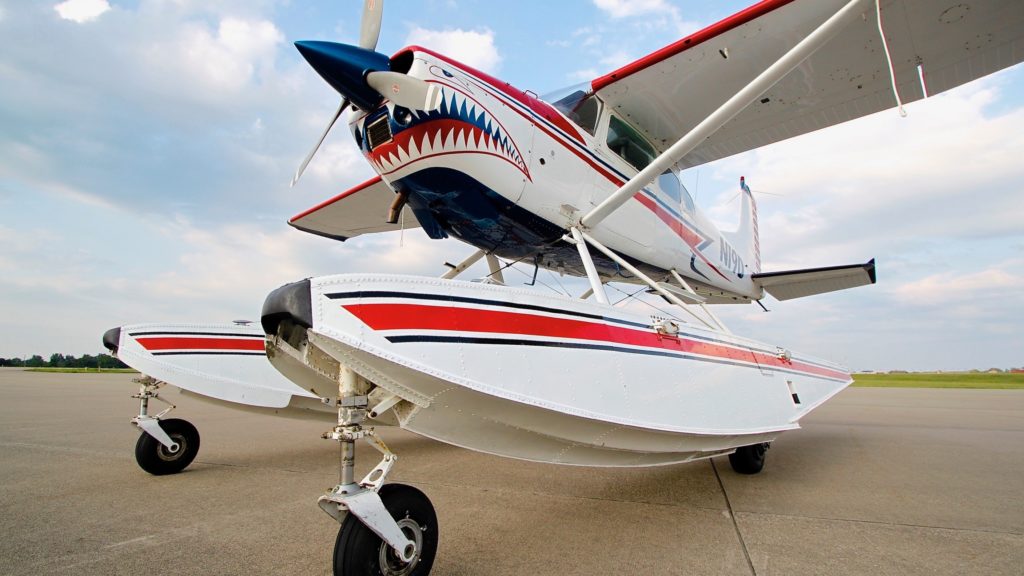The Shark Seaplane is a Cessna 185 Amphibious Seaplane. This configuration allows us to land on water or a standard runway. This model of plane has been a choice of many bush pilots. The Cessna 185 can be configured with different types of landing gear, including wheels, floats, or amphibious floats. Below is key information about our seaplane.
-
Manufacture: Cessna
Model: A185F
Year: 1980
Tail Number: N19D
Crew: 1
Passengers: 3 (originally 5, converted to 3 for more passenger comfort)
Cruise Speed: 120 knots (140 mph) with floats installed
Range: 482 miles
Length: 27 feet
Wingspan: 39 feet, 6 inches (WingX Extensions)
Height: 13 feet, 5 inches
Gross Take Off Weight: 3,525 pounds
Useful Load: 993 pounds (on amphibious floats)
Fuel Capacity: 88 gallons
Fuel Type: 100LL
Powerplant: Continental IO-550-D
Horsepower: 300
Floats: EDO 696-3500 Amphibious FloatsVisit N19D.com for more pictures and information about the Shark Seaplane.
The shark teeth are a tribute to the P40 Flying Tigers from World War II. Read more about the P40 here.
Flying a Cessna 185 on amphibious floats requires the pilot to have a seaplane rating. As we operate commercially, our pilots also a commercial seaplane ratings.
From a safety standpoint, we need to make sure the water is free of debris, is long enough for a takeoff, and wave conditions are within limits. From a legal standpoint, a seaplane is treated like a boat on most bodies of water. However, we confirm with local, state, and federal regulations before landing our seaplane on a specific body of water.





